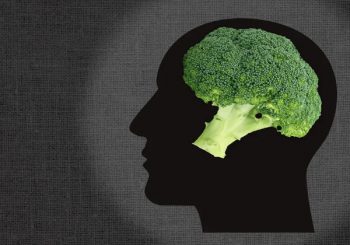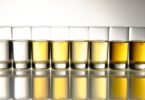Contributing writer for Wake Up World
Science has proven time after time that food is potent medicine. Broccoli, for example, has a solid scientific foundation showing it’s one of the most valuable health-promoting foods around. While it contains several health-promoting compounds, one of the most widely studied is sulforaphane.
[pro_ad_display_adzone id=”110028″]
The cancer-fighting properties of sulforaphane are perhaps the most well-known, but it has also been shown to benefit your heart and brain, boosting detoxification1 and helping prevent and/or treat high blood pressure,2 heart disease, Alzheimer’s3 and even autism.4,5,6 Now, researchers report sulforaphane may also be helpful in the treatment of schizophrenia.7,8,9
Sulforaphane May Improve Cognition
An initial study,10 published in Clinical Psychopharmacology and Neuroscience in 2015, involved just 10 outpatients with schizophrenia. Patients were given 30 milligrams (mg) of sulforaphane glucosinolate per day for eight weeks. As reported by the authors:
“Clinical symptoms using the Positive and Negative Syndrome Scale (PANSS) and cognitive function using the Japanese version of CogState battery were evaluated at the beginning of the study and at week 8.
A total of 7 patients completed the trial. The mean score in the Accuracy component of the One Card Learning Task increased significantly after the trial … This result suggests that SFN [sulforaphane] has the potential to improve cognitive function in patients with schizophrenia.”
Schizophrenia Linked to Chemical Imbalances in the Brain
More recently, a series of three animal and human studies11 by researchers at Johns Hopkins School of Medicine suggest sulforaphane may also benefit patients with schizophrenia by helping to rebalance the glutamate levels in their brain. As reported by Neuroscience News:12
“Schizophrenia is marked by hallucinations, delusions and disordered thinking, feeling, behavior, perception and speaking. Drugs used to treat schizophrenia don’t work completely for everyone, and they can cause a variety of undesirable side effects, including metabolic problems increasing cardiovascular risk, involuntary movements, restlessness, stiffness and ‘the shakes.'”
According to Dr. Akira Sawa, director of the Johns Hopkins The Schizophrenia Center, “It’s possible that future studies could show sulforaphane to be a safe supplement to give people at risk of developing schizophrenia as a way to prevent, delay or blunt the onset of symptoms.”13
One of the studies14 in this series, published January 9, 2019, in JAMA Psychiatry, assessed differences in brain metabolism between 81 schizophrenic patients and 91 healthy controls, finding schizophrenics had lower levels of key brain chemicals associated with the disease — glutamate, N-acetylaspartate,15 GABA and glutathione — in their anterior cingulate cortex, a brain region involved in executive function, emotional affect and cognition.16
According to the paper17 “Cognitive and Emotional Influences in Anterior Cingulate Cortex,” this brain region appears to be “the brain’s error detection and correction device,” and “is part of a circuit involved in a form of attention that serves to regulate both cognitive and emotional processing.”
In the brain, glutamate — an excitatory neurotransmitter18 — plays an important role in brain cell communication, and lower levels have been linked to both schizophrenia and depression.
Schizophrenics also had lower levels of N-acetylaspartate in the orbitofrontal region, an area involved in cognitive processing and decision-making, as well as the thalamus, an area involved in the relaying of sensory signals and the regulation of consciousness.
They also had lower levels of glutathione in the thalamus. Glutathione, a master antioxidant produced by your body, is made up of glutamate, cysteine and glycine, and is a physiologic reservoir of neuronal glutamate.19
Modulating Glutamate Levels May Improve Schizophrenia
For the second study in the series, the researchers focused on the management of glutamate in the brain. As reported by Neuroscience News,20 they wondered whether faulty glutamate management might be a key problem in the disease, and whether drugs could be used to “shift this balance to either release glutamate from storage when there isn’t enough, or send it into storage if there is too much.”
So, in this study,21 published February 12, 2019, in PNAS, they blocked an enzyme that turns glutamate into glutathione in the brain cells of rats, using a drug called L-Buthionine sulfoximine, thereby allowing glutamine to be used up.
“The researchers found that these nerves were more excited and fired faster, which means they were sending more messages to other brain cells. The researchers say shifting the balance this way is akin to shifting the brain cells to a pattern similar to one found in the brains of people with schizophrenia,” Neuroscience News 22 explains.
Next, to increase the level of glutamine stored as glutathione, they used sulforaphane, as it activates a gene that makes an enzyme required for the synthesis of glutathione from glutamate. As expected, this slowed the speed with which neurons fired.
In other words, it helped normalize the brain cells, allowing them to behave in a manner more like healthy controls. Dr. Thomas Sedlak, assistant professor of psychiatry and behavioral sciences told Neuroscience News:23
“We are thinking of glutathione as glutamate stored in a gas tank. If you have a bigger gas tank, you have more leeway on how far you can drive, but as soon as you take the gas out of the tank it’s burned up quickly. We can think of those with schizophrenia as having a smaller gas tank.”
Sulforaphane Boosts Glutathione Levels in the Brain
In an earlier pilot study24 (counted as the third in this series) by the same team, published in the May 2018 issue of Molecular Neuropsychiatry, they used mice and healthy human subjects to assess the effect of sulforaphane on glutathione levels in the brain. Here, patients with a history of psychiatric illness were specifically excluded. As explained by the authors:
“The participants completed two visits, scheduled 7 days (1 week) apart. The participants were given 100 µmol sulforaphane as standardized broccoli sprout extract in the form of 2 gel capsules, and instructed to ingest the extract each morning for 1 week …
Urine and blood specimens were collected prior to the first dose of broccoli sprout extract and within 4 h of the final dose. MRS [magnetic resonance spectroscopy] scans were performed prior to the first dose and within 4 h of ingesting the final dose …
Following 1-week administration of sulforaphane, the study participants demonstrated a significant augmentation of GSH in non-monocytes that include a mixture of T cells, B cells, and NK cells. The GSH level was 9.22 nmol/mL before sulforaphane administration and 12.2 nmol/mL following sulforaphane administration, a 32% increase …
We report that a short-term administration of sulforaphane was sufficient to significantly increase peripheral GSH levels in human subjects. We found an increase in GSH in the HP [hippocampus], but not elsewhere in the brain regions assessed. The peripheral GSH ratio had a strong and significantly positive correlation with brain GSH levels in the THAL [thalamus] upon sulforaphane treatment …
[I]n a submitted study, we will report that peripheral GSH levels may be correlated with cognitive functions. We thus posit the significance of exploring the possible correlations between peripheral GSH and clinical/neuropsychological measures and the influence of sulforaphane on such functional measures that are altered in neuropsychiatric disorders. The present study is a key first step toward such future studies.”
In summary, these findings suggest sulforaphane might be a safe alternative to help reduce psychosis and hallucinations in schizophrenic patients, although the researchers warn more studies are required to identify optimal dosing and assess long-term effects.
Studies Suggest Sulforaphane May Improve Autism Symptoms
Another series of studies suggests cruciferous vegetables high in sulforaphane might benefit those with autism spectrum disorder (ASD), primarily by upregulating genes that protect against oxidative stress, inflammation and DNA damage, “all of which are prominent and possibly mechanistic characteristics of ASD,” the authors say.25
Sulforaphane also boosts antioxidant capacity, glutathione synthesis, mitochondrial function, oxidative phosphorylation and lipid peroxidation, while lowering neuroinflammmation. According to the researchers, these characteristics also make it suitable for the treatment of ASD.26
The first study,27 published in 2014, found daily treatment with dietary sulforaphane significantly reduced the severity of “socially impaired behavior” in children with ASD after 18 weeks. Improvements became obvious (compared to those in the placebo group) at four weeks of treatment.
At 18 weeks, the sulforaphane treatment group had a 34% reduction in Abberant Behavior Checklist (ABC) scores and a 17% reduction in Social Responsiveness Scale (SRS) scores. According to the authors:28
“[A] significantly greater number of participants receiving sulforaphane had improvement in social interaction, abnormal behavior, and verbal communication. Upon discontinuation of sulforaphane, total scores on all scales rose toward pretreatment levels.”
Series Highlights Success Stories With Sulforaphane Treatment
The second study,29 published in 2017, presented a case series follow-up of patients who continued the sulforaphane treatment after the first study ended. Here’s a limited outtake from the narrative provided by one of the families whose son is referred to as “R”:
“R’s parents wanted to help him: ‘He would make constant noises and did all these abnormal motor tics; [we] felt like he really had no control [over his behavior and body] and it was just noise, not functional words. He didn’t have any expressive language.’
R’s parents saw several medical specialists who prescribed a total of 18 different medications, all of which had either minimal or negative effects on R. ‘Nothing changed the constant noises or the terrible rage attacks,’ until R took SF [sulforaphane] …
R’s family took him to the Lurie Center at Massachusetts General Hospital where we were conducting the study on the effects of SF on males with ASD. The study was a randomized double-blind placebo-controlled trial. However, within days, R’s mother believed that he was taking SF:
‘I knew that he was on the study drug because I saw such a change so quickly. I want to scream from the rooftops and tell people to give the kids broccoli sprouts [extract] because literally, it changed my life,’ reported R’s mother.
‘Now we can go to the movies, restaurants, plays, we went on vacation with another family, we go to church, we just went to a concert, things we could never do before are now possible. [I am] able to have confidence and he [R] is more confident as well.’
N.B. Such a rapid response was unusual in the context of what was observed by the study physicians with other subjects. When responses to supplementation were observed, they generally took 3 or 4 weeks to become manifest. In this case, the study team actually wondered whether the mother might be exhibiting a placebo response; however, the ABC subscales and both ABC and SRS overall scores for R did also change.”
New Mechanism of Action Revealed
The third paper30 in this series, a trial progress report published in 2018, assessed the safety, clinical effects and mechanisms of action of sulforaphane in ASD. Interestingly, this paper describes how sulforaphane mimics “the fever effect” in ASD. This is where high fever temporarily improves behavior in autistic children. The researchers explain:
“Fever stimulates heat shock proteins (HSP) and cellular stress responses, leading to improved synaptic function and long-range connectivity. Expression of gene transcription by NFE2L2 (Nrf2), which is reduced in ASD, also increases during fever.
Sulforaphane (SF), an isothiocyanate obtained from broccoli sprouts, induces HSP and Nrf2 as well as ‘cell-protective’ responses that may benefit ASD through common cellular mechanisms underlying heterogeneous phenotypes.”
While this trial was still incomplete at publication, as only 46 participants out of a planned 50 had been enrolled, preliminary analysis showed “26% participants were much/very much improved at seven weeks, 38% at 15 weeks, 64% at 22 weeks, and 64% at 30 weeks,” the researchers said, adding that “preliminary results show that sulforaphane appears to be safe and effective in children with ASD.”
Sulforaphane Stands Out as Potential Alzheimer’s Treatment
Sulforaphane may also be useful in the treatment of Alzheimer’s disease. In a 2018 study,31 mice with Alzheimer’s were treated with sulforaphane for four months, which significantly inhibited both the generation and accumulation of amyloid-beta, and alleviated several pathological changes associated with Alzheimer’s, including oxidative stress and neuroinflammation.
The mice also demonstrated cognitive benefits, remaining normal, cognitively speaking, compared to wild-type mice at 10 months of age, which is when dementia typically begins in Alzheimer’s mice. In tests of neurons themselves, pretreating cortical neurons with sulforaphane protected them against injury caused by amyloid beta.
An earlier study32 published in 2009 revealed that antioxidants — including sulforaphane — protect cells from oxidative damage, facilitate removal of the amyloid-beta peptide and reduce abnormal protein-related causes of disease.
In studying how sulforaphane interacts with amyloid-beta to prevent various neurodegenerative processes, researchers of a 2014 study33 used liquid chromatography/electrospray ionization mass spectrometry to reveal that amyloid-beta is less likely to aggregate in the presence of sulforaphane.
Another 2014 study34 showed that, in mice with Alzheimer’s-like lesions (induced in part by administration of aluminum), sulforaphane reduced neurobehavioral deficits by promoting the growth of new neurons (neurogenesis) as well as reducing the aluminum load.
Broccoli Provides Many Health Benefits
While this article focuses on the neurological benefits of broccoli, research has revealed a long list of health benefits associated with this cruciferous vegetable, including a reduced risk for:35
| Osteoarthritis36 | Cancer — Studies have shown sulforaphane supports normal cell function and division while causing apoptosis (programmed cell death) in colon,37 prostate,38 breast39 and tobacco-induced lung cancer40 cells, and reducing the number of cancerous liver tumors in mice41 |
| High blood pressure42 | Heart disease43 |
| Kidney disease44 | Insulin resistance45 and Type 2 diabetes46 |
| Obesity47 | Allergies48,49 |
Broccoli and other water- and nutrient-rich veggies also support healthy liver function, which in turn promotes optimal functioning of your natural detoxification systems. Broccoli sprouts, in particular, have been shown to help detox environmental pollutants such as benzene.50,51
This is important for virtually everyone these days, but especially women of childbearing age. Autistic children are known to have higher levels of environmental toxins in their system, and this underlying toxic burden plays a significant role.
Healthy liver function also helps promote healthy, beautiful skin, making broccoli a good antiaging food. What’s more, the sulforaphane in broccoli also helps repair skin damage.
How to Boost Sulforaphane Benefits of Broccoli
To boost the benefits of sulforaphane in broccoli and other cruciferous veggies, pair them with a myrosinase-containing food.52 Myrosinase is an enzyme that converts the precursor gluocosinalate, glucoraphanin, to sulforaphane. Examples include mustard seed,53 daikon radishes, wasabi, arugula or coleslaw, with mustard seed being the most potent.
Adding a myrosinase-rich food is particularly important if you eat the broccoli raw, or use frozen broccoli. Ideally, broccoli should be steamed for three to four minutes to increase the available sulforaphane content. This light steaming eliminates epithiospecifier protein — a heat-sensitive sulfur-grabbing protein that inactivates sulforaphane — while retaining the myrosinase in the broccoli.54
Steaming is important because without myrosinase, your body cannot absorb sulforaphane. If you opt for boiling, blanch the broccoli in boiling water for no more than 20 to 30 seconds, then immerse it in cold water to stop the cooking process. If you prefer raw food, you’d be better off eating raw broccoli sprouts instead of mature broccoli.
According to Dr. Paul Talalay, professor of pharmacology and co-author of the 1997 study55 “Broccoli Sprouts: An Exceptionally Rich Source of Inducers of Enzymes That Protect Against Chemical Carcinogens,” “Three-day-old broccoli sprouts consistently contain 20 to 50 times the amount of chemoprotective compounds found in mature broccoli heads.”56 As a result, you can eat far less of them while still maximizing your benefits.
References:
- 1 Cancer Prevention Research August 2014; 7(8): 813-823
- 2, 42, 44 American Journal of Hypertension 2012 Feb;25(2):229-35
- 3 Mol Nutr Food Res. 2018 Apr 30:e1800240
- 4, 25, 26, 27, 28 PNAS 2014 Oct 28; 111(43): 15550–15555
- 5, 29 Global Advances in Health and Medicine 2017; 6: 2164957X17735826
- 6, 30 Neurology April 22, 2018; 90 (15 Supplement)
- 7, 11, 12, 13, 20, 22, 23 Neuroscience News May 8, 2019
- 8 Eurekalert May 8, 2019
- 9 Schizophrenia.com April 15, 2019
- 10 Clinical Psychopharmacology and Neuroscience 2015 Apr 30;13(1):62-7
- 14 JAMA Psychiatry January 9, 2019;76(3):314-323
- 15 Schizophr Res. 2007 Jul; 93(1-3): 23–32
- 16, 17 Cognitive and Emotional Influences in Anterior Cingulate Cortex by Bush, Luu and Posner (PDF)
- 18, 19 Biochem Biophys Res Commun. 2011 Jun 17;409(4):596-602
- 21 PNAS February 12, 2019; 116(7): 2701-2706
- 24 Molecular Neuropsychiatry 2018 May;3(4):214-222
- 31 J Alzheimers Dis. 2018;62(4):1803-1813
- 32 Archives of Pharmacal Research January 2009; 32(1): 109-115
- 33 Rapid Commun Mass Spectrom. 2014 Oct 30;28(20):2171-80
- 34 Int J Mol Sci. 2014 Aug; 15(8): 14396–14410
- 35 Forbes July 1, 2012
- 36 Arthritis & Rheumatism 2013 Dec;65(12):3130-40
- 37 Cancer Research March 1, 2000:60(5):1426-33
- 38 Science Direct Aug. 2012
- 39 Clinical Cancer Research May 1, 2010; 16(9):2580-90
- 40 Cancer Research September 15, 2005; 65(18):8548-57
- 41 Archives in Cancer Research November 20, 2018
- 43 Journal of the American Heart Association April 4, 2018; 7: e008391
- 45, 47 Diabetes Journal May 2017; 66(5): 1222-1236
- 46 Sci Transl Med. 2017 Jun 14;9(394). pii: eaah4477
- 48 Food Funct.2014 Jan;5(1):35-41
- 49 BMB Reports Vol 45 Issue 5 Pages 311-316 May 31, 2012
- 50 Cancer Prevention Research June 9, 2014 DOI: 10.1158/1940-6207.CAPR-14-0103
- 51 Johns Hopkins Press Release June 16, 2014
- 52 Science Daily September 13, 2011
- 53 Food Chemistry June 1, 2013; 138(2-3):1734-41
- 54 Science Daily April 5, 2005
- 55 Proc Natl Acad Sci U S A. 1997 Sep 16; 94(19): 10367–10372
- 56 Science Daily September 19, 1997
About the author:
Born and raised in the inner city of Chicago, IL, Dr. Joseph Mercola is an osteopathic physician trained in both traditional and natural medicine. Board-certified in family medicine, Dr. Mercola served as the chairman of the family medicine department at St. Alexius Medical Center for five years, and in 2012 was granted fellowship status by the American College of Nutrition (ACN).
While in practice in the late 80s, Dr. Mercola realized the drugs he was prescribing to chronically ill patients were not working. By the early 90s, he began exploring the world of natural medicine, and soon changed the way he practiced medicine.
In 1997 Dr. Mercola founded Mercola.com, which is now routinely among the top 10 health sites on the internet. His passion is to transform the traditional medical paradigm in the United States. “The existing medical establishment is responsible for killing and permanently injuring millions of Americans… You want practical health solutions without the hype, and that’s what I offer.”
Visit Mercola.com for more information, or read Dr. Mercola’s full bio and resumé here.
[pro_ad_display_adzone id=”110027″]








